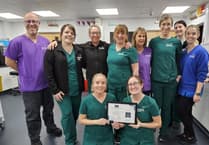CORNWALL has been named one of 27 areas across England to benefit from a significant new phase of Sport England funding aimed at tackling stubborn levels of inactivity in communities facing the greatest need.
The county will receive £362,085 in initial development funding during 2025, as part of a national £250-million programme designed to help people move more, improve health outcomes, and reduce widening inequalities.
Sport England’s announcement places Cornwall among the top 20 per cent of areas nationally for social need, deprivation and health inequality—factors that often sit behind low levels of physical activity. While the county is known for its beaches and natural beauty, officials say the postcard image hides sharp contrasts.
“Coastal and rural inequalities are so often masked by real affluence,” explained Paul Critchley, CEO of Active Cornwall, which has led the county’s involvement in the programme. “We’ve been working with our partners and communities over a number of years to better understand inactivity and inequality in Cornwall – who it affects most and where it’s most concentrated. We are thrilled that this ambitious Development Bid has been formally approved.”
Sport England’s investment marks the start of a two-stage process. The development phase, running for 12 months, will prepare Cornwall to apply for a much larger Full Grant award in 2026. Crucially, the new funding will target communities in St Austell and Penzance first, two areas repeatedly highlighted in local data for entrenched health inequalities and lower-than-average activity levels.
Active Cornwall has already convened local partners at events in St Erme, St Austell and Penzance this year to shape the county’s approach. Representatives from health, education, voluntary groups and local authorities will now work together to create what Sport England calls a “place-based approach” – which is a long-term, community-anchored model that focuses on lived experience rather than short-term programmes.
Evidence nationally shows that physical activity can improve wellbeing, strengthen local economies and reconnect isolated communities. However, Sport England says the people who could benefit most are often those least able to access facilities, green spaces or opportunities to be active because of cost, transport, health conditions or limited local provision.
The development work in Cornwall will centre on six core areas: community engagement and insight; leadership development; governance; evaluation; creating more active environments; and “test and learn” pilot projects. Rather than starting from scratch, partners aim to build on initiatives that are already working locally and adapt them to meet the unique needs of each community.
The approach, Critchley said, is about creating conditions for “deep, sustainable change,” ensuring community voices shape decisions from the outset. “Securing this Development Award is a critical stage in enabling this wider investment opportunity for Cornwall,” he added. “We can all now proceed with confidence together.”
If successful in the New Year, Cornwall could secure a transformative long-term investment designed to embed physical activity into daily life across the county – and ensure that the places most in need are the first to see meaningful change.





Comments
This article has no comments yet. Be the first to leave a comment.